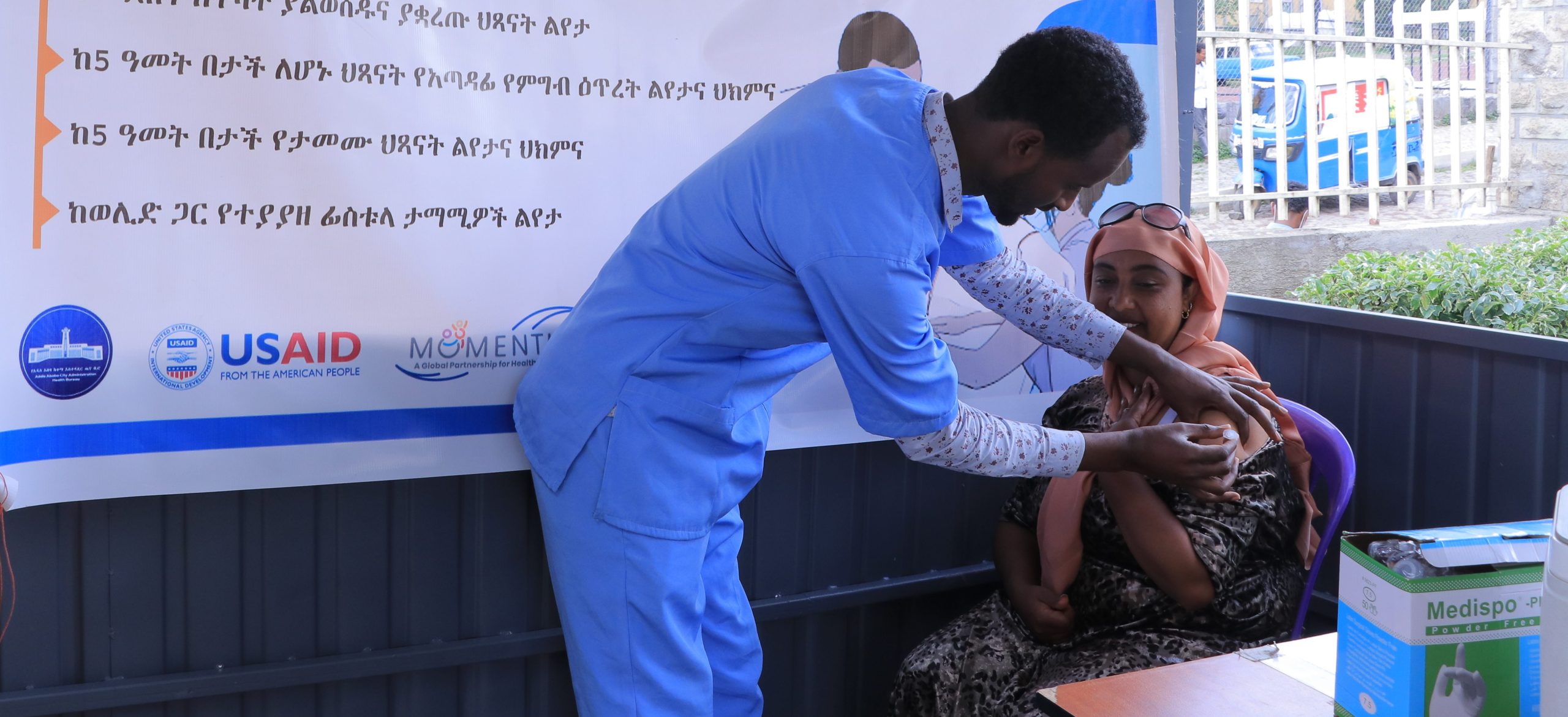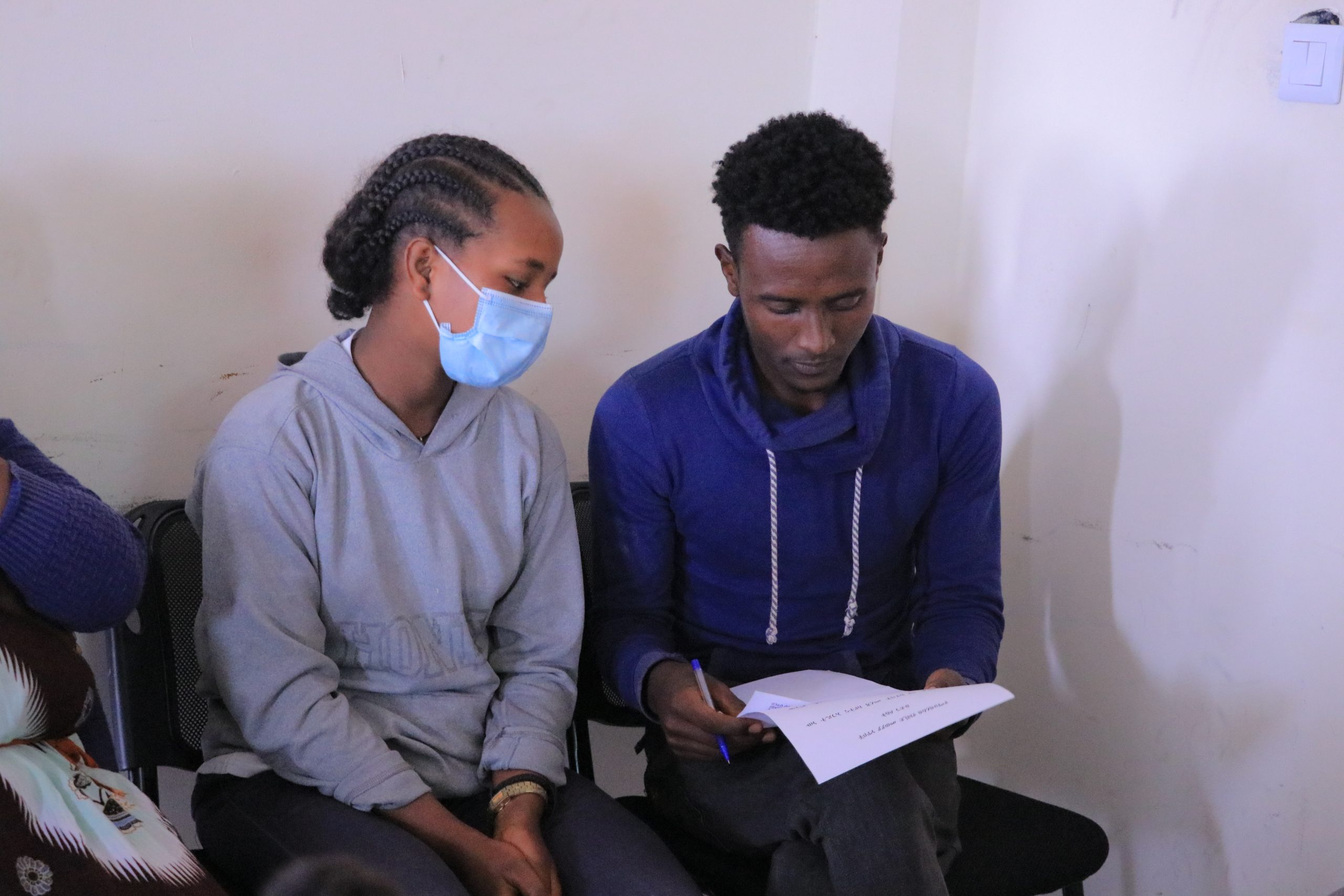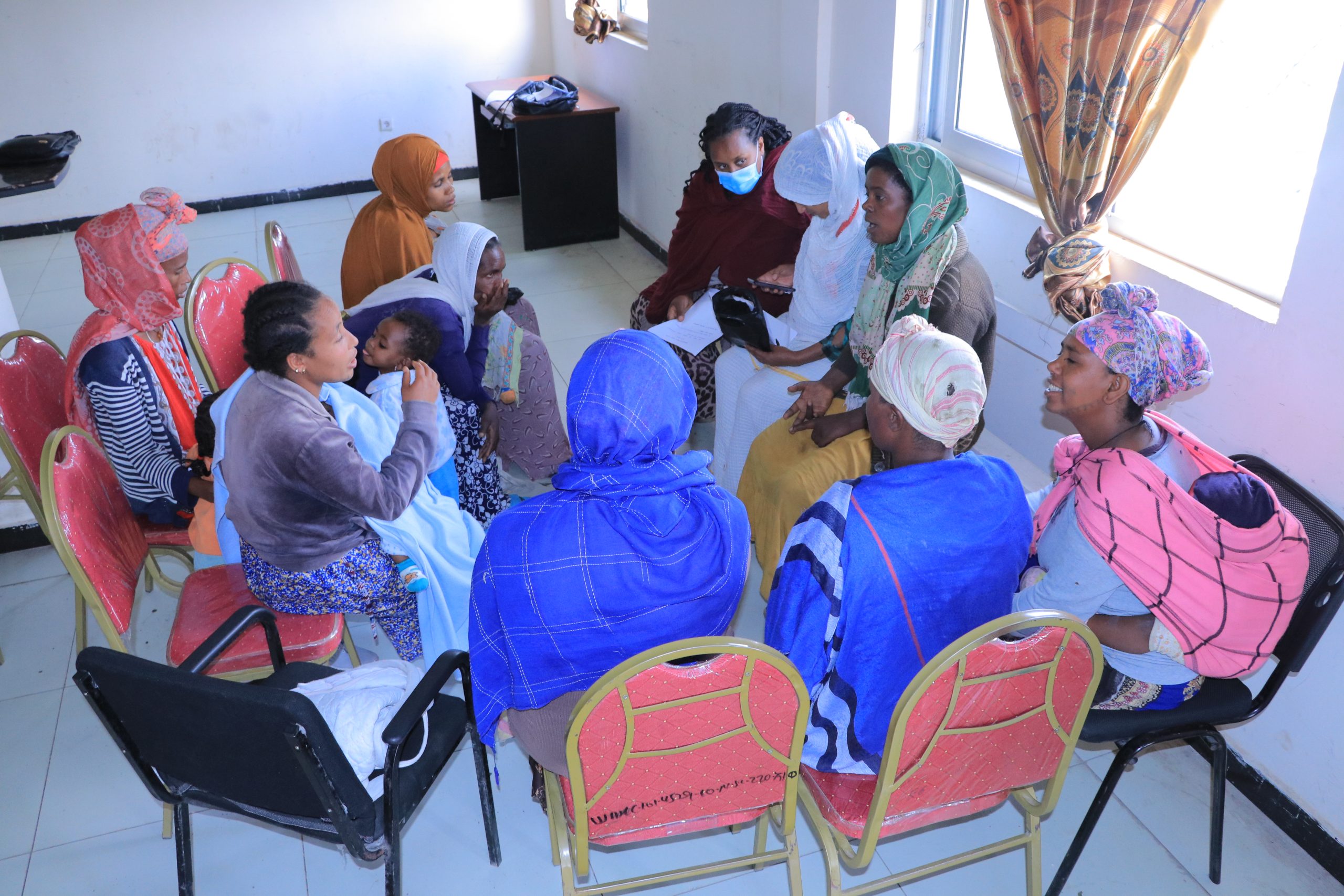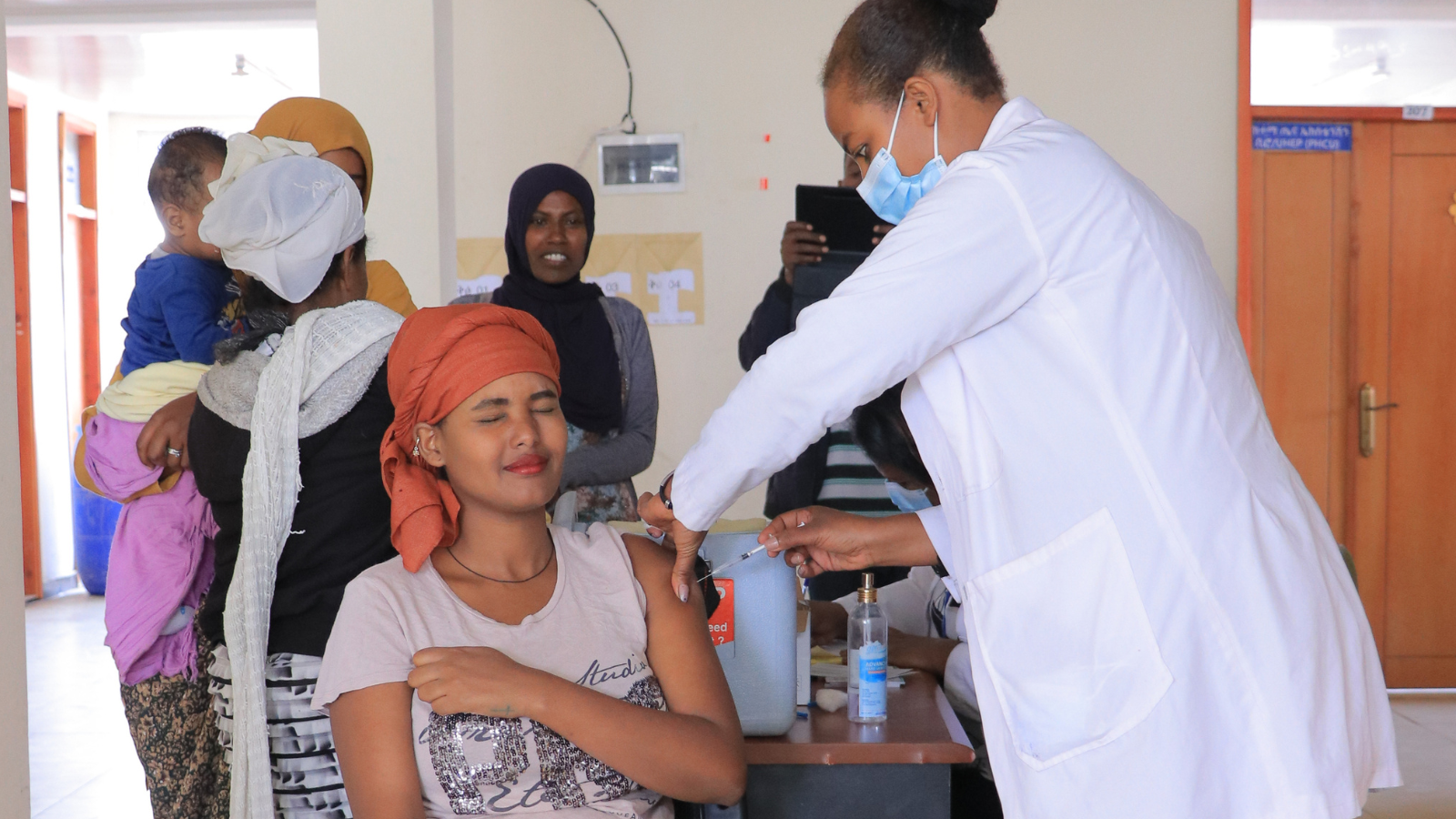Overcoming COVID-19 Vaccine Hesitancy in Ethiopia Through Community Dialogue
Published on January 2, 2024

By Preethi Murthy, Program Officer, MOMENTUM Routine Immunization Transformation and Equity; Photos by MOMENTUM Routine Immunization Transformation and Equity Ethiopia

In recent years, misconceptions about the COVID-19 vaccine were widespread in Ethiopia’s capital city of Addis Abada. By June 2022, the country was in the third round of its national vaccination campaign but only 40 percent of the target population, which included essential workers, health workers, people over the age of 60, and people with comorbidities (existing medical conditions), was vaccinated.
MOMENTUM Routine Immunization Transformation and Equity worked alongside Ethiopia’s Ministry of Health and the Addis Ababa City Health Administration Bureau to engage communities in three sub-cities of Addis Ababa—Nifas Silk-Lafto, Lemi Kura, and Bole—to address myths and misinformation among citizens. The project trained health workers in Addis Ababa to convene community dialogues for groups such as women’s associations, older adults, youth associations, and community representatives to share their perceptions about the COVID-19 vaccination.


Gebremariam Estifanos is the Family Health Officer for the Nifas Silk-Lafto Sub-City Health Office. He works with MOMENTUM and health centers to facilitate community engagement activities.
“The biggest challenges are rumors that exaggerate vaccine side effects, and perceptions that there is no disease,” he explains. “A lot of people at this time say they are not at risk for COVID. So the community dialogue is important for this: to change their idea to ‘we must vaccinate and secure yourself and others in the community.’”
Held in health center classrooms and at community meeting centers in villages, community dialogues addressed vaccine hesitancy by educating participants on COVID-19 modes of transmission, vaccination, and debunking common myths and misconceptions. Community members voiced their hesitation and concerns regarding COVID-19 vaccination in a judgment-free environment, and health workers leading the dialogue shared accurate information in response. In the weeks leading up to and during Ethiopia’s fourth COVID-19 vaccination campaign in May 2023, 5,355 people attended 177 community dialogues in the three MOMENTUM-supported sub-cities.
“We facilitate in different woredas [districts] and health centers the community dialogues and after that [participants] have a lot of information so then they may get vaccination. And they go to other social meetings to advocate about the vaccine for their friends, for their family, and nearby community,” said Gebremariam.

Mesere Muluneh, a participant from a community dialogue session at a health center in Nifas Silk-Lafto Sub-City, says, “…When they called me I was eager to attend this meeting. Even now, I am ready to get an additional booster dose after the event.”

Mesere is just one example of a community dialogue participant who is eager to share her knowledge and recommend the COVID-19 vaccine to others in her community. MOMENTUM staff conducted face-to-face interviews with participants immediately before and after 10 randomly selected community dialogues. The interviews showed a significant rise in favorable attitudes toward COVID-19 vaccination post dialogue: in the Nifas Silk Lafto sub-city, more than 8 in 10 community dialogue participants surveyed reported a positive attitude toward the COVID-19 vaccine, a 75 percent increase from before the dialogue. More than half the participants (56 percent) got vaccinated immediately following the dialogues.
By addressing widespread misconceptions and hesitation through open, informed discussions, the project has not only improved attitudes towards the vaccine but has also encouraged participants to advocate for vaccination within their communities, a result confirmed through direct feedback from health workers and project participants.


